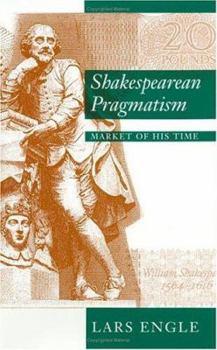Shakespearean Pragmatism: Market of His Time
Just as Shakespeare's theater was an economic gamble, subject to the workings of a market, so the plays themselves submit actions, persons, and motives to an audience's judgment. Such a theatrical economy, Lars Engle suggests, provides a model for the way in which truth is determined and assessed in the world at large--a model much like that offered by contemporary pragmatism. To Engle, the problems of worth, price, and value that appear so...
Format:Hardcover
Language:English
ISBN:0226209423
ISBN13:9780226209425
Release Date:November 1993
Publisher:University of Chicago Press
Length:276 Pages
Weight:1.20 lbs.
Dimensions:0.8" x 6.3" x 9.3"
Customer Reviews
0 rating





